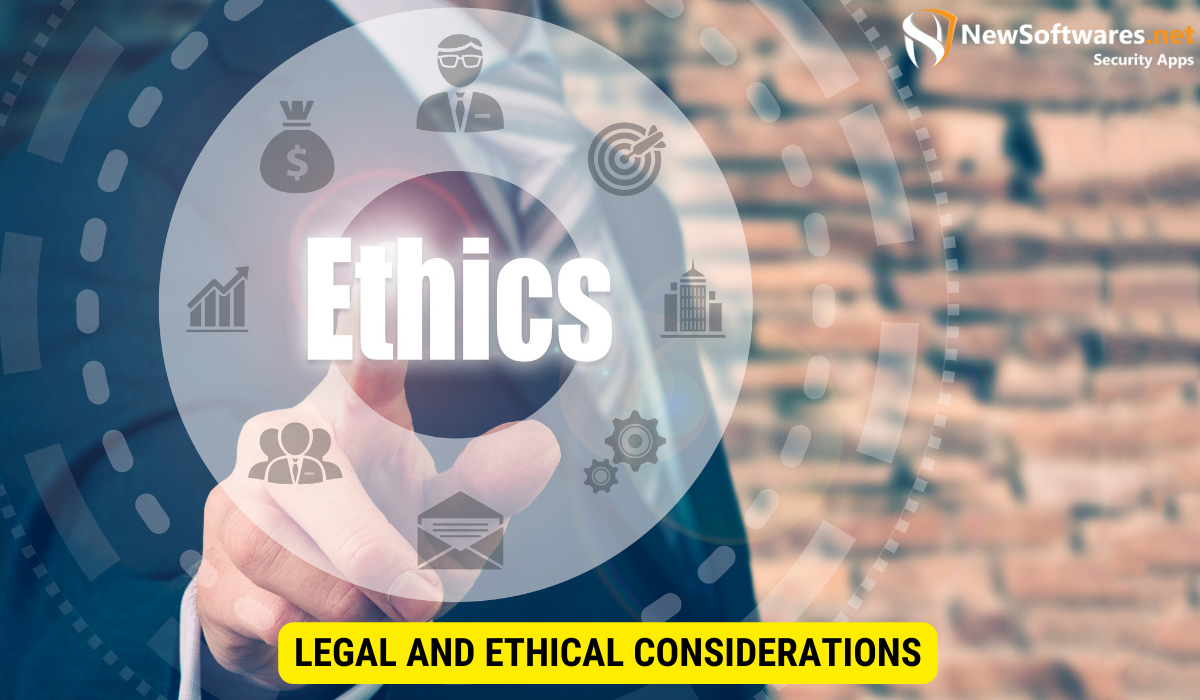Yes, privacy remains a significant issue in the era of Big Data. Despite advancements in data management and security, companies’ vast collection, analysis, and storage of personal information raises critical concerns about user privacy, data protection, and potential misuse.
In today’s digital age, where the collection and analysis of massive amounts of data has become the norm, the concept of privacy has taken center stage. With the emergence of big data and its profound impact on every aspect of our lives, it is crucial to examine the implications of this data revolution on our privacy. Are we still able to maintain our privacy in the era of big data? Together, we will explore the various dimensions of privacy in relation to big data, discuss the challenges and risks it poses, and delve into the legal and ethical considerations surrounding this complex issue.
Understanding the Concept of Privacy

Privacy, at its core, is the right of individuals to have control over their personal information and the freedom to keep it private. In the digital age, privacy has taken on new dimensions, influenced by the rapid advancement of technology and the widespread use of digital platforms. Traditional notions of privacy, such as the right to be left alone and to have personal information kept confidential, have evolved to encompass a broader understanding of privacy in the context of data collection and analysis.
Privacy is a fundamental human right that has been recognized and protected by various international and national laws. It is essential for individuals to have the ability to determine how their personal information is collected, stored, and used by others, especially in the vast realm of big data. With the increasing reliance on digital platforms and the growing amount of personal data being generated and shared, the need to protect privacy has become more critical than ever.
Defining Privacy in the Digital Age
In the digital age, privacy can be defined as the ability of individuals to determine how and to what extent their personal information is collected, stored, and used by others, especially in the vast realm of big data. It includes the protection of sensitive personal data, such as financial information, health records, and personal preferences, from unauthorized access or misuse.
With the advent of the internet and the rapid development of technology, the collection and analysis of personal data have become more pervasive. Companies and organizations collect vast amounts of data from individuals through various means, such as online forms, cookies, and social media interactions. This data is then used for various purposes, including targeted advertising, personalized recommendations, and even predicting individual behavior.
However, the collection and use of personal data raise significant privacy concerns. Individuals may not always be aware of the extent to which their data is being collected and how it is being used. Moreover, there is a risk of data breaches and unauthorized access, which can lead to identity theft, financial fraud, and other harmful consequences.
The Evolution of Privacy Over Time
The concept of privacy has evolved over time, shaped by societal and technological developments. In earlier times, privacy primarily revolved around protecting one’s physical spaces and personal communications. People valued their privacy in their homes, where they could retreat from the public eye and have a sense of security.
However, with the rise of the internet and the increasing digitization of our lives, privacy has become more complex and intertwined with technology. The advent of social media platforms, online shopping, and the proliferation of connected devices has created a digital footprint that raises new privacy concerns. Every online interaction leaves a trace, contributing to a vast pool of personal data that can be analyzed and used to make predictions about individuals.
As technology continues to advance, the boundaries of privacy continue to be tested. The development of artificial intelligence and machine learning algorithms has enabled the processing and analysis of massive amounts of data, raising questions about the ethical use of personal information. The trade-off between convenience and privacy has become a topic of debate, as individuals weigh the benefits of personalized services against the potential risks to their privacy.
In conclusion, privacy in the digital age is a complex and multifaceted concept. It encompasses the protection of personal information, the right to control how it is collected and used, and the need for safeguards against unauthorized access. As technology continues to evolve, it is crucial for individuals, organizations, and policymakers to work together to find a balance between innovation and privacy protection.
The Emergence of Big Data
Big data refers to the vast amount of structured and unstructured data that is generated through various sources, including online interactions, digital devices, and sensors. This data, often characterized by its volume, velocity, and variety, holds immense potential for organizations to gain insights and make informed decisions. However, the sheer magnitude of big data and the sophisticated tools used to analyze it have raised questions about privacy.
What is Big Data?
Big data encompasses immense amounts of information that can be collected, processed, and analyzed to reveal patterns, trends, and correlations that were previously unknown. It includes data from various sources, such as social media, internet searches, mobile apps, and sensors embedded in everyday objects. The collection and analysis of this data have the potential to revolutionize industries, facilitate scientific advancements, and improve public services.
The Role of Big Data in Today’s Society
Big data has become an integral part of today’s society, shaping how businesses operate, improving healthcare outcomes, enabling personalized services, and enhancing decision-making processes. From targeted advertising to predictive analytics in healthcare, big data has ushered in a new era of innovation and efficiency. However, alongside its benefits, it has also sparked concerns related to privacy.
The Intersection of Privacy and Big Data
As big data continues to permeate our lives, the intersection of privacy and the analysis of massive amounts of personal data becomes a crucial point of consideration.
How Big Data Impacts Privacy
The collection and analysis of big data have the potential to erode privacy in multiple ways. With the ability to aggregate and link vast amounts of data obtained from various sources, organizations can gain detailed insights into individuals’ behaviors, preferences, and activities. The continuous tracking of online activities and the generation of comprehensive user profiles create concerns about the intrusive nature of data collection and the potential for abuse or misuse.
The Balance Between Big Data and Privacy
Striking the right balance between utilizing big data for beneficial purposes and preserving privacy is a complex challenge. While big data has the potential to drive innovation and improve services, it should be done in a way that respects individuals’ privacy rights. Safeguards must be put in place to ensure that data collection and analysis methods are transparent, secure, and adhere to ethical standards.
Privacy Concerns in the Big Data Landscape
As the use of big data expands across various sectors, an array of privacy concerns arises that warrant attention.
Potential Privacy Risks
The utilization of big data raises concerns about data breaches, security vulnerabilities, and the potential for unauthorized access to personal information. Furthermore, the risk of discrimination based on data analysis results and the potential for surveillance and profiling pose significant privacy risks.
The Debate Over Privacy and Security
Privacy and security have often been viewed as conflicting interests, particularly in the context of big data. The tension between protecting individuals’ privacy and ensuring national security or public safety has sparked intense debates. Striking a balance between privacy rights and the measures taken to prevent security threats is crucial in addressing these concerns.
Legal and Ethical Considerations

Given the complex nature of privacy in the era of big data, legal and ethical considerations play a vital role in safeguarding individuals’ rights and ensuring responsible use of data.
Current Laws Protecting Privacy
Various laws and regulations exist to protect individuals’ privacy in the digital age. Privacy acts, data protection laws, and regulations surrounding consent and data handling are designed to establish a framework for organizations to handle personal data responsibly.
Ethical Dilemmas in Big Data and Privacy
The collection and use of big data raise ethical dilemmas that require careful consideration. Questions regarding consent, anonymization, data ownership, and the broader societal impact of data analysis need to be addressed to ensure ethical practices in the realm of big data and privacy.
Key Takeaways
In the era of big data, privacy remains a critical issue that demands attention. The growth of big data and its potential to unlock valuable insights must be balanced with protecting individuals’ privacy rights. Through transparent data collection practices, secure data handling, and adherence to ethical guidelines, it is possible to harness the power of big data while safeguarding privacy.
FAQs
Q: Is privacy still relevant in the era of big data?
A: Yes, privacy is still important in the era of big data. While big data offers immense potential for innovation and advancements, it should not come at the expense of individuals’ privacy rights.
Q: Can organizations balance big data analysis with privacy concerns?
A: Striking a balance between big data analysis and privacy concerns is challenging but essential. Organizations must adopt transparent and ethical data practices, ensuring individuals’ data is handled securely and with respect for privacy rights.
Q: What are the potential risks of big data analysis?
A: The potential risks of big data analysis include data breaches, security vulnerabilities, the risk of discrimination, and the potential for unauthorized access to personal information. Safeguards must be in place to mitigate these risks and protect privacy.
Q: What role do laws play in protecting privacy in the era of big data?
A: Laws and regulations play a crucial role in protecting privacy in the era of big data. They establish a framework for responsible data handling, consent, and provide individuals with legal protections against privacy violations.
Conclusion
In conclusion, privacy continues to be an issue in the era of big data. As technology advances and data collection becomes increasingly widespread, it is imperative to strike a balance between the potential benefits of big data analysis and the preservation of privacy. Robust legal frameworks, ethical considerations, and responsible data handling practices are essential to protect individuals’ privacy rights and ensure the responsible use of big data.
